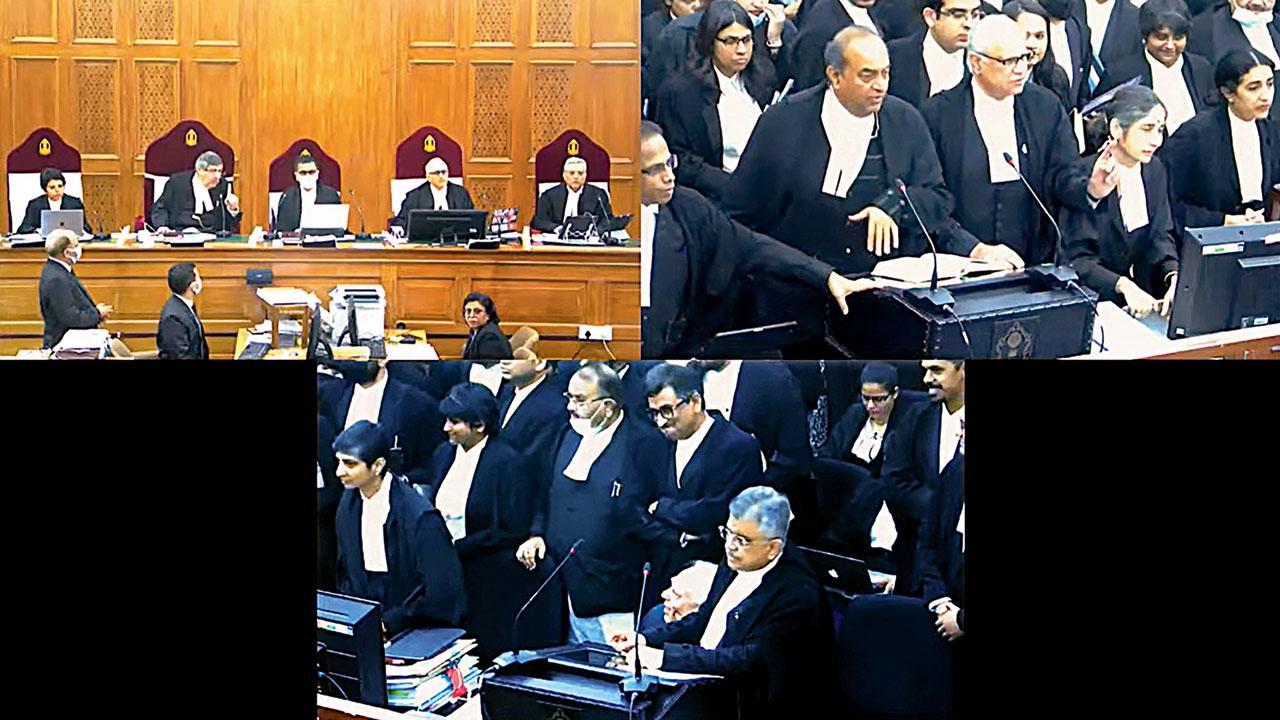Petitioners urge SC to use moral authority to ensure acceptance of same-sex marriages

A Constitution bench during the hearing, at the Supreme Court in New Delhi, on Wednesday. Pic/PTI
The petitioners seeking legal validation of same-sex marriage on Wednesday urged the Supreme Court to use its plenary power, “prestige and moral authority” to push the society to acknowledge such a union. This would ensure LGBTQIA persons lead a “dignified” life like heterosexuals, they added.
ADVERTISEMENT
Senior Advocate Mukul Rohatgi, appearing for one of the petitioners, “Our parents have accepted us despite belonging to older generations. They want their children to settle in their lives. The State wants them to be ostracised. They want their parents to be ostracised. All these discriminations are needed to be wiped out.”
He said LGBTQIA ((lesbian, gay, bisexual, transgender, queer, questioning, intersex, pansexual, two-spirit, asexual, and ally) have no representation in Parliament and that is why it is the courts where they have to come. Rohatgi referred to the Indian scenario before the arrival of Muslim and British rulers and said society permitted such sexual acts.
“You go to Khajuraho, sexual acts are depicted there and they are there for several hundred years...There is no European influence. British influence prevailed since they made the laws and this Victorian model of decency was imposed,” he said, adding it exhibited a “colonial mindset” and must go now.
Chief Justice D Y Chandrachud also dismissed the Centre’s argument that the demand for right to marry is an ‘urban elitist’ concept, reported Bar and Bench. “Government doesn’t have any data to show that same-sex marriage is an urban elitist concept,” he said. The five-judge constitution bench will the arguments further today.
This story has been sourced from a third party syndicated feed, agencies. Mid-day accepts no responsibility or liability for its dependability, trustworthiness, reliability and data of the text. Mid-day management/mid-day.com reserves the sole right to alter, delete or remove (without notice) the content in its absolute discretion for any reason whatsoever
 Subscribe today by clicking the link and stay updated with the latest news!" Click here!
Subscribe today by clicking the link and stay updated with the latest news!" Click here!







